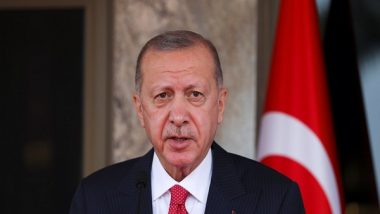By John Solomou
Nicosia [Cyprus] May 22 (ANI): In the inconclusive elections held on May 14, Turkish President Recep Tayyip Erdogan beating expectations, defied dozens of polls predicting that his rival Kemal Kilicdaroglu will lead the elections and proved that he correctly focussed on winning over nationalists and promising a strong and independent Turkey.
Also Read | Lion Attack: Zoo Owner in Slovakia Mauled to Dead by Lions at Feeding Time, Cops Find Body Parts at Scene.
Next Sunday there will be a runoff election, as both candidates failed to get more than 50 per cent of the vote.
Erdogan received 49.5 per cent of the vote, while the leader of the six opposition parties Kilicdaroglu received 44.88 per cent. Ultra-nationalist Sinan Ogun who was the third candidate garnered 5.17 per cent of the vote and may play the role of "kingmaker".
According to press reports, tomorrow Ogun will announce which of the two candidates he will support in Sunday's election. However, in view of Ogun's statements that he would not support anybody who would work with Kurdish parties, Kilicdaroglu will not risk losing the support of the pro-Kurdish HDP, thanks to which he scored big wins in many eastern cities. So, Ogun will likely urge his followers to vote for the current President.
Erdogan, despite the inevitable attrition of 20 years in power, the big economic problems facing the country, authoritarianism and the consequences of the recent earthquakes, managed to get a very high percentage of votes, which makes him the great favourite for re-election.
Erdogan's three cards that kept him in the lead are: a) Islamic religion, b) anti-Americanism and anti-Western sentiment, c) nationalism and anti-Kurdish sentiment.
Kemal Kilicdaroglu as a personality did not have the characteristics to inspire and express the heterogeneous anti-Erdogan sentiment in Turkey. The support for Kilicdaroglu from the pro-Kurdish HDP had a discouraging effect on the nationalist audience, pushing votes towards Erdogan.
Furthermore, Kilicdaroglu's intention of turning back to the West ran up against the anti-American and anti-Western reflexes of much of society. Erdogan was projected as the defender of the Islamic conservative way of life, the fighter against "Kurdish terrorism" and the strong political leader who stands up to the West.
In his campaign in the first round of elections, the mild-mannered Kilicdaroglu had projected as his main themes "inclusiveness" and "fraternity" among the various groupings of the Turkish people, but now in the runoff election, he has changed his rhetoric in view of Erdogan's accusations that he is "collaborating with terrorists" and has adopted a more confrontational approach.
The six-party opposition headed by Kilicdaroglu, in the new election campaign, accuses the ruling Justice and Development Party (AKP) of its cooperation with the radical Islamist Free Cause Party (HUDA-PAR) which has four MPs in the Turkish parliament due to this collaboration. The HUDA-PAR is affiliated with the radical Islamist terrorist organization Hizbullah (different from Lebanon's Hezbollah) which killed many people, even Islamists, using horrendous torture methods.
Kilicdaroglu realizes that he must do everything possible to convince a sizeable percentage of Turkish nationalists to vote for him and that beating Erdogan is "doable". After the first round of elections, Kilicdaroglu is doubling down on his promise to return millions of refugees back to Syria and vows to protect the motherland - a reference to security and the country's war against Kurdish separatists, something that may displease many Kurds who voted for him.
For Erdogan, the problem is how to convince all his supporters to vote for him again in the runoff, as a lot of them may take it for granted that he will be re-elected and may not bother to go to the polling stations.
It should be said that in case Kilicdaroglu is elected President, he will certainly face many difficulties in getting the necessary reform legislation passed in Turkey's Parliament as Erdogan and his allies can count on 322 seats in the 600-member Grand National Assembly (Parliament), while the six-party alliance supporting Kilicdaroglu was won 213 seats and the Kurdish Freedom Party 62 seats.
It is noteworthy that hard-line nationalist parties have increased their share of the vote. Devlet Bahceli's Nationalist Movement Party (MHP) won 10.1 per cent of the vote, Meral Aksener's Good Party (IYI Parti) won 9.7 per cent, Umit Ozdag's Victory Party won 2.2 per cent, the Great Unity Party (BBP) won 1 per cent, and the Nation Party won 0.92 per cent.
If, according to the most likely scenario, Erdogan is elected President for a third consecutive term, he will become Turkey's longest-serving leader. The current election coincides with the 100th anniversary of the founding of the Turkish state (1923), and Erdogan will be called by his supporters the "Father of the Nation" on an equal footing as the founder of modern Turkey, Kemal Ataturk.
For Kilicdaroglu failure to be elected will mean the end of his political career and will trigger the succession process within the Republican Party (CHP), with the popular Istanbul mayor Imamoglu or Ankara mayor Yavas, as the most popular successors.
Last Sunday's election result confirms that Turkey is a deeply divided country between Kemalism and political Islam, between authoritarianism and democracy, and between religious conservatism and secularism. Over twenty years of Erdogan's rule, the division is becoming entrenched in Turkish society.
Erdogan, despite the attrition of staying in power for 20 years, the economic problems, authoritarianism, and the consequences of the recent earthquakes has managed to get a very high percentage of votes, which makes him the big favourite for re-election.
Kilicdaroglu as a personality did not have the necessary characteristics to inspire and express the anti-Erdogan sentiment existing mainly in Turkey's cities. The support Kilicdaroglu received from the pro-Kurdish HDP discouraged a lot of people from defining themselves as nationalists vote for him and so they voted for Erdogan. Kilicdaroglu's intention of turning back to the West ran up against the anti-American and anti-Western reflexes of much of Turkish society. Erdogan was projected as the defender of the Islamic conservative way of life, the fighter against "Kurdish terrorism" and the political leader who stands up to the West.
As Howard Eisenstein, professor of history at St. Lawrence University, points out: "Erdogan's emphasis on nationalism, terrorism and Western conspiracies is not decorative to most voters: it is at the core of their worldview." (ANI)
(This is an unedited and auto-generated story from Syndicated News feed, LatestLY Staff may not have modified or edited the content body)


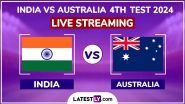


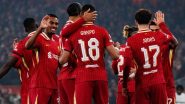

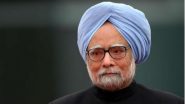
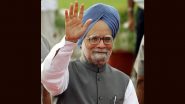
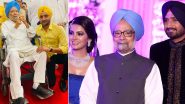
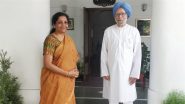

 Quickly
Quickly









